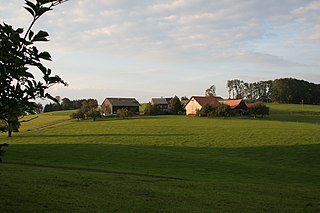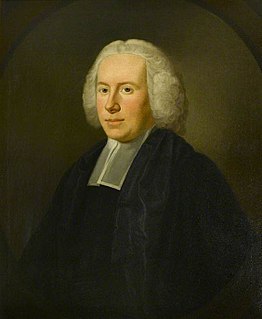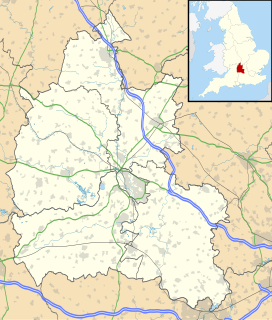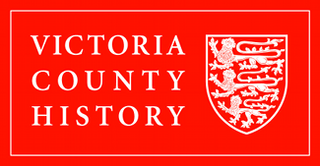| Juniper Hill | |
|---|---|
Juniper Hill shown within Oxfordshire | |
| OS grid reference | SP579324 |
| Civil parish |
|
| District | |
| Shire county | |
| Region | |
| Country | England |
| Sovereign state | United Kingdom |
| Post town | Brackley |
| Postcode district | NN13 |
| Dialling code | 01280 |
| Police | Thames Valley |
| Fire | Oxfordshire |
| Ambulance | South Central |
| EU Parliament | South East England |
| UK Parliament | |
Juniper Hill is a hamlet in the civil parish of Cottisford in Oxfordshire. Juniper Hill is just over 2 miles (3.2 km) south of Brackley in neighbouring Northamptonshire.

A hamlet is a small human settlement. In different jurisdictions and geographies, hamlets may be the size of a town, village or parish, be considered a smaller settlement or subdivision or satellite entity to a larger settlement. The word and concept of a hamlet have roots in the Anglo-Norman settlement of England, where the old French hamlet came to apply to small human settlements. In British geography, a hamlet is considered smaller than a village and distinctly without a church.

Cottisford is a village and civil parish in Oxfordshire, about 3.5 miles (5.6 km) south of Brackley in neighbouring Northamptonshire. The parish's northern and northwestern boundaries form part of the boundary between the two counties. The parish includes the hamlet of Juniper Hill about 1 mile (1.6 km) northwest of Cottisford. The 2011 Census recorded the parish's population as 216.

Oxfordshire is a county in South East England. The ceremonial county borders Warwickshire to the north-west, Northamptonshire to the north-east, Buckinghamshire to the east, Berkshire to the south, Wiltshire to the south-west and Gloucestershire to the west.
Juniper Hill was named after the common juniper, Juniperus communis , which originally grew in the area. [1] In 1754 there were only two cottages in the area. [1] However, on the 1841 census there are 16 households in the village, and by 1901 there were 25 households in the village. The local inn, established about 1860, was known as the 'Fox'. [1]

Juniperus communis, the common juniper, is a species of conifer in the genus Juniperus, in the family Cupressaceae. It has the largest geographical range of any woody plant, with a circumpolar distribution throughout the cool temperate Northern Hemisphere from the Arctic south in mountains to around 30°N latitude in North America, Europe and Asia. Relict populations can be found in the Atlas Mountains of Africa.
Flora Thompson was born in Juniper Hill in 1876. She fictionalised the hamlet as Lark Rise in her Lark Rise to Candleford trilogy.
Flora Thompson was an English novelist and poet best known for her semi-autobiographical trilogy about the English countryside, Lark Rise to Candleford.

Lark Rise is a 1939 semi-autobiographical novel by the English author Flora Thompson. It was illustrated by Lynton Lamb.

Lark Rise to Candleford is a trilogy of semi-autobiographical novels about the countryside of north-east Oxfordshire and Buckinghamshire, England, at the end of the 19th century. They were written by Flora Thompson and first published together in 1945. The stories were previously published separately as Lark Rise in 1939, Over to Candleford in 1941 and Candleford Green in 1943.
- Juniper Hill House














